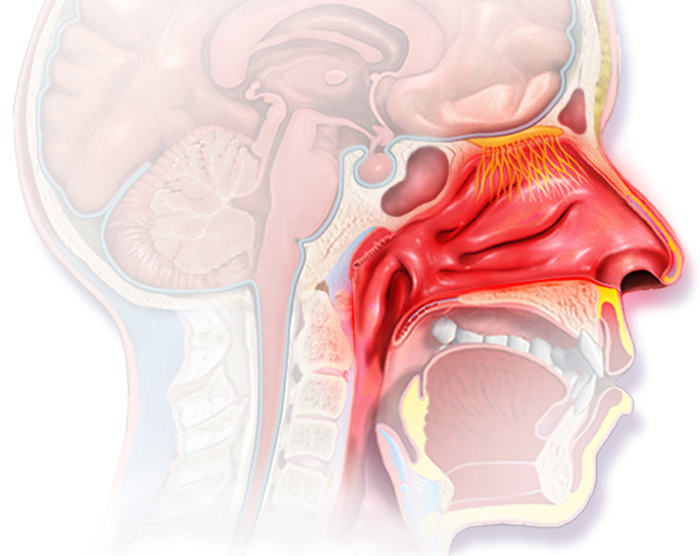Allergic rhinitis is the medical term for the inflammation of the nasal passages and causes cold-like symptoms such as sneezing, itchiness or a runny nose. Allergic rhinitis can be caused by:
• infection
• reaction to medication
• irritation
• allergy

Allergic rhinitis is classified as either seasonal allergic rhinitis (hayfever) or perennial (all year round). The most common allergen that causes seasonal rhinitis is pollen, and perennial is often caused by indoor allergens such as dust mites, indoor moulds and pet fur.
Symptoms of allergic rhinitis
The severity of symptoms can vary, particularly hayfever symptoms as they are dependent upon weather conditions and pollen count (which will be explained further under causes). Symptoms may include:
• a runny or blocked nose
• frequent sneezing
• itchy, red or watery eyes (also known as allergic conjunctivitis)
• an itchy throat, mouth, nose and ears
The following are less common but may be experienced:
• the loss of the sense of smell
• facial pain due to the blocked sinuses
• sweats
• headaches
Symptoms are often mild but may affect a person’s quality of life by disrupting their sleep patterns, therefore interfering with their concentration which may cause them to miss work or school. Many studies have shown that hayfever symptoms can affect school exam results. If someone suffers from allergic rhinitis they are at greater risk of developing asthma, and hayfever symptoms could trigger an asthma attack.
